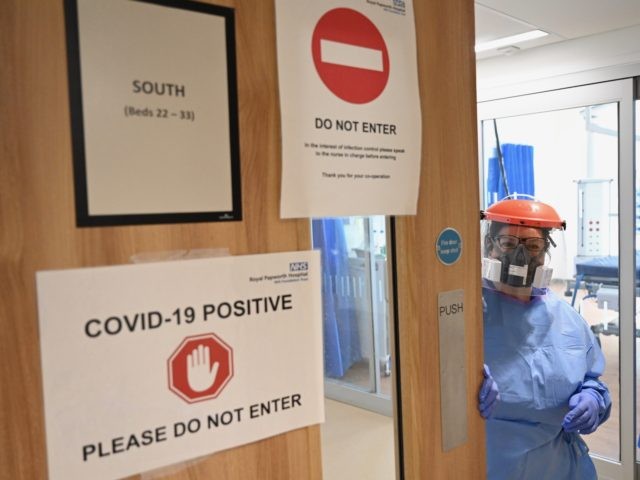The coronavirus lockdown has resulted in seven million people in the United Kingdom not coming forward for routine healthcare, possibly leading to cancer and other ailments not being caught in time, Health Secretary Sajid Javid has revealed.
Pushing back against the outcry from the scientific establishment in Britain against the lifting of lockdown restrictions, the recently installed Health Secretary said that it has become necessary to reduce restrictions in order to deal with health problems other than the Chinese coronavirus.
“If we want to start dealing with those non-Covid health problems, then we have to start easing and moving away from these restrictions,” Sajid Javid told Times Radio.
“There are some seven million people, for example, that have not come forward to the NHS to be looked after with their health problems — with, let’s say, cancer problems, heart disease problems, mental health problems — because of the pandemic.
“I’m not just the Covid secretary of state, I am the health secretary and I need to be looking at everything.”
Javid continued by noting that the UK’s draconian lockdowns have resulted in a myriad of other health problems, saying: “One of the worst outcomes of all the restrictions we’ve necessarily had to have during the pandemic is that there’s been a significant rise in depression and many other public health problems.”
The issue of coronavirus restrictions and the ensuing culture of fear has long been recognised as leading to adverse side effects to the British population.
In October, for example, the healthcare analyst firm Dr Foster reported that the government’s manipulative scare tactics surrounding the pandemic had resulted in a massive decrease in non-Covid related illnesses being treated by the National Health Service.
Dr Foster pointed to the government’s message to “Stay Home, Protect the NHS, Save Lives” as having frightened potential patients into refraining from seeking medical attention, resulting in up to a 90 per cent drop in non-coronavirus related admissions, including for prostate cancer (down by 64 per cent), bowel cancer (39 per cent), and breast cancer (30 per cent).
'Emotionally Manipulative Propaganda': UK Govt Releases 'Stay Home' Coronavirus Scare Video https://t.co/gY4LmQjiP0
— Breitbart London (@BreitbartLondon) January 23, 2021
While Javid has taken a more pro-liberty stance than his disgraced predecessor, Matt Hancock, the new Health Secretary has previously argued in favour of governments taking “u-turns” on policy despite potential public backlash.
Mr Javid argued in a Harvard paper that “flip-flopping” is healthy for democratic societies, writing: “Changing course in policy-making when new or better information is incorporated is an essential feature of good policy-making. Yet, politicians find it hard, and the public often punishes such behaviour. Why?”
The argument suggests that while the Health Secretary may be in favour of lifting lockdowns now, he could reverse course and reimpose restrictions later this year, despite the government’s promise that the end of lockdowns will be “irreversible“.
Last month, Prime Minister Boris Johnson also hinted that lockdowns — which are supposedly set to end this month — could return in the future, saying: “You can never exclude that there will be some new disease, some new horror that we simply haven’t budgeted for or accounted for.”
The government’s health advisory board, the Scientific Advisory Group on Emergencies (SAGE) published warnings on Monday which indicated that “stronger” lockdown measures could be necessary going into the winter months.
Figures from the National Health Service have also been pressuring the government to keep lockdowns on the table.
The chief executive of the NHS Confederation, Matthew Taylor said that healthcare staff “want to be able to treat as many people as possible, but if they are to be able to deal with the huge backlogs of treatment, alongside ever-rising Covid cases, caution has to be key.”
The president of the Royal College of Emergency Medicine, Katherine Henderson said that “macho” messages from the government about lifting lockdowns and ending mask-wearing will lead to more pressure on the socialised healthcare system in the winter, warning: “The thought of this being even more intense is incredibly worrying.”
IDS Predict Pressure Will Be ‘Enormous’ to Bring Back Restrictions in Autumn https://t.co/cESTb2JNPe
— Breitbart London (@BreitbartLondon) July 7, 2021
Follow Kurt Zindulka on Twitter here @KurtZindulka

COMMENTS
Please let us know if you're having issues with commenting.